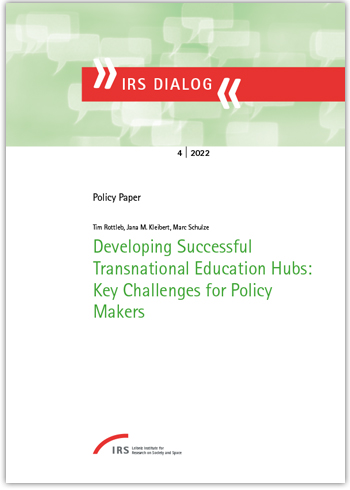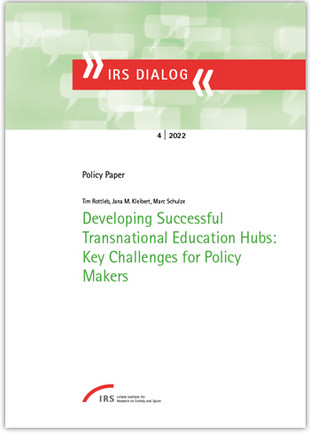Hauptinhalt
Developing Successful Transnational Education Hubs: Key Challenges for Policy Makers
IRS Dialog 4 | 2022

This report addresses stakeholders involved in designing and implementing policy frameworks of higher education hub projects that particularly include international branch campuses, as well as organisations involved in consulting, advertisement and support of the internationalisation of higher education. It draws on multiple field visits to transnational education hubs, and on 136 interviews with senior higher education managers and transnational education stakeholders in Europe, Asia and the Middle East conducted between 2018 and 2020. Based on this data, we identify key phases and challenges for developing a transnational education hub. From these findings we developed the following suggestions that should be taken into account for designing successful policies.
- Motivations of governments and universities can diverge. Policy makers need to consider that, contrary to common conceptions, universities will not automatically contribute to national or regional development goals.
- Adequate frameworks for regulation and localisation of transnational higher education need to be introduced and further developed. Too permeable systems can attract dubious providers and create incongruity with local higher education systems, negatively impacting branch campuses’ quality and their effects on the economy.
- Embedding branch campuses locally requires external incentives. Hoped-for characteristics of a transnational education hub, such as collaboration between branch campuses or with domestic universities, and synergy effects with the local economy need to be actively fostered by the hosting authorities.
Overall, we argue that policy makers need to find the right balance between, on the one hand, creating an environment in which foreign providers of higher education can invest with relative ease and, on the other hand, setting up mechanisms and regulations that integrate them and ensure their contribution to long-term strategic development.


